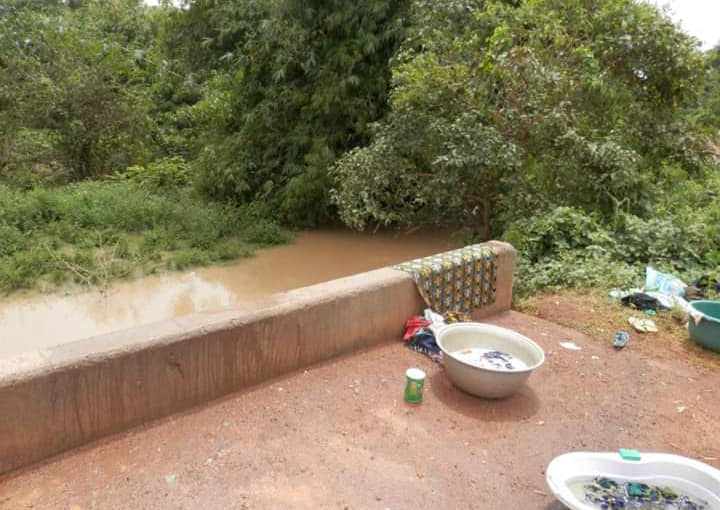Residents of Anguwan Kudi Nuku Community in Abaji Area Council of Nigeria’s Federal Capital Territory (FCT) rely upon dirty ponds as their only source of drinking water.
The community lack access to safe drinking water, a situation that has since forced them to drink from a dirty pond that is meant for animals.
This is even as the residents in different narratives recounted how they are contracting different kinds of diseases as a result of the dirty water they drink.
Mr. Usman Mohammed, a community champion who spoke to MAWA about the lack of water in the community, narrated how the inhabitants suffer the availability of safe drinking water.
This is the situation in Anguwan Kudi Nuku community in FCT even as Cholera a disease that is largely caused by drinking dirty water, last year killed over 70 persons while more than 698 were infected across communities in FCT.
It is difficult to think that residents in FCT the Nigerian capital territory rely on this dirty water from the gutters as their only source of drinking water.
Anguwan Kudi Nuku Community is not an exception, many communities in FCT suffer a huge infrastructural deficit. In many of the communities, residents have no safe drinking water and there is no provision for sanitation, drainage, and waste collection. A situation that makes maintaining hygiene for the residents impossible.
And this has in many ways led to a cholera outbreak that has claimed many lives in FCT and other parts of the country.
Lack of access to safe drinking water in communities across FCT has continued to persist, and this is even though there is an FCT Water Board that has a core mandate to provide quality and healthy water across FCT.
However, the practice in FCT is that the rich that can afford it, dig a borehole in their house as a source of water while the poor rely upon water vendors popularly known as “Mai Rua” and the poor depend on dirty water from ponds and gutters with high chances of contracting diseases such as Cholera and others.
MAWA Foundation could not immediately reach out to the FCT Water Board as calls made to a telephone number +234 8059710600 on its website did not go through and an email sent to their official email address info@fctwb.gov.ng was not responded to.
Attn: @DrRamatuTijjani@fctwb @OfficialFCTA@FCTAbujaPHEOC @MuhdMusaBello
Residents of FCT in Anguwan kudi Nuku community of Abaji Area Council rely on this dirty pond as their only source drinking water. Pls provide them with water.@TrackaNG @DavidHundeyin @julietkego pic.twitter.com/L3gOB1NhfL
— MAWA – Foundation (@mawafd) August 29, 2022

